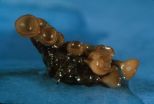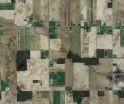(Press-News.org) STANFORD, Calif. - Add pine-bark extract to the list of dietary supplements that don't live up to their promises of improved health. A new study from the Stanford University School of Medicine shows that pine-bark extract had no effect in lowering blood pressure or reducing other risk factors for heart disease.
Senior author Randall Stafford, MD, PhD, said the findings are part of a growing body of evidence that antioxidant supplements don't improve heart function.
"While there's a good biological basis to presume that antioxidant supplements might have a beneficial effect on heart health, this study is another example that they don't," said Stafford, associate professor of medicine at the Stanford Prevention Research Center. "There's also a broader message that many dietary supplements don't have the data to back up their claims of providing health benefits."
The study, which will be published in the Sept. 27 issue of the Archives of Internal Medicine, is the largest randomized, placebo-controlled clinical trial to date examining the effects of pine-bark extract on blood pressure and other heart disease risks.
Pine-bark extract has been reputed to have beneficial properties because it is an antioxidant, meaning that it counters the effects of free radicals - oxygen molecules that can damage cells in the body. While some previous studies linked pine-bark extract to reductions in blood pressure, Stafford said most of those studies were "open-label" (meaning that participants knew they were taking the extract) and didn't have control groups of patients who were given placebos. In some cases, participants took the extract in conjunction with other medication, so it wasn't possible to determine the effects of the pine-bark extract alone.
For the Stanford study, the researchers recruited 130 overweight individuals who had blood pressure above an optimal level but were not taking medication for it. Stafford said the researchers felt these were the types of people who would be more likely to seek out dietary supplements as an alternative therapy.
The participants were randomly assigned to take either a Japanese-produced pine-bark extract or a placebo. The extract dosage was 200 mg per day, which researchers said was in the middle range of dosages used in previous studies.
Blood-pressure readings and blood samples of the participants were taken before the study began, at six weeks and then again at the end of the 12-week study period. Additionally, participants were monitored to ensure that their diets, medications and weight didn't change during the study.
In analyzing the results, the researchers found that the participants' blood pressure levels - as well as other risk factors for heart disease, including cholesterol, blood glucose, body weight and C-reactive protein levels - remained virtually the same in both groups throughout the study.
"We conducted additional analyses to see if there were subgroups of patients who might have received a benefit from the supplement, but none of them did," Stafford said.
The study did confirm that the pine-bark extract was safe for consumption even though it didn't improve heart health, but Stafford said many other dietary supplements haven't undergone the same rigorous safety testing. He pointed to a U.S. Food & Drug Administration decision in 2004 to ban over-the-counter sales of ephedra, an herbal supplement that contained amphetamine-like drugs, because it caused heart problems.
"Most consumers presume that the supplements on the market are safe, but there isn't rigorous information to back up those presumptions," said lead study author Rebecca Drieling, MPH, research director for the SPRC's Program on Prevention Outcomes and Practices. "That's because federal regulations treat dietary supplements more like food than like drugs. Also chemical composition varies among dietary supplements, making standardized testing difficult."
###
Other co-authors include associate professor of medicine Christopher Gardner, PhD, and data analyst David Ahn, PhD. The study was funded by Toyo Shinyaku Co. of Japan, which provided the pine-bark extract along with the placebo tablets. None of the researchers has financial or consulting ties to the supplement company.
Information about Stanford's Department of Medicine, which also supported the work, is available at http://medicine.stanford.edu.
The Stanford University School of Medicine consistently ranks among the nation's top medical schools, integrating research, medical education, patient care and community service. For more news about the school, please visit http://mednews.stanford.edu. The medical school is part of Stanford Medicine, which includes Stanford Hospital & Clinics and Lucile Packard Children's Hospital. For information about all three, please visit http://stanfordmedicine.org/about/news.html.
END
In about 40 percent of research participants undergoing medical imaging, radiologists may detect a tumor or infection unrelated to the study but that may be meaningful to the individual's health, according to a report in the September 27 issue of Archives of Internal Medicine, one of the JAMA/Archives journals.
"An incidental finding in human subjects research is defined in a major consensus project as an observation 'concerning an individual research participant that has potential clinical importance and is discovered in the course of conducting research, but is beyond ...
An intensive lifestyle intervention appears to help individuals with type 2 diabetes lose weight and keep it off, along with improving fitness, control of blood glucose levels and risk factors for cardiovascular disease, according to a report in the September 27 issue of Archives of Internal Medicine, one of the JAMA/Archives journals.
Improving blood glucose control and cardiovascular risk factors in patients with type 2 diabetes is critical in preventing long-term complications of the disease, according to background information in the article. Emphasis has been placed ...
While both black patients and white patients appear to benefit from end of life discussions with their physician, black patients are less likely to experience end-of-life care that accurately reflects their preferences, according to a report in the September 27 issue of Archives of Internal Medicine, one of the JAMA/Archives journals.
"Although black patients are also more likely than white patients to desire life-prolonging measures, receipt of life-prolonging care at the end of life is associated with greater distress and with poorer quality of life," the authors write ...
Home-based exercises followed by voluntary home training seem to be associated with long-term effects on balance and gait (manner of walking), and may help protect high-risk, elderly women from hip fractures, according to a report in the September 27 issue of Archives of Internal Medicine, one of the JAMA/Archives journals.
"Falls are responsible for at least 90 percent of all hip fractures," the authors write as background in the article. "Hip fractures place the greatest demands on resources and have the greatest effect on patients because they are associated with high ...
Use of pine bark extract, at a dose of 200 milligrams per day, appears safe but did not improve risk factors for heart disease, according to a report in the September 27 issue of Archives of Internal Medicine, one of the JAMA/Archives journals.
"Although traditional strategies such as prescription medications, dietary changes and physical activity have proven benefits for reducing cardiovascular disease risk, a substantial population seeks alternative therapies, including various dietary supplements, to lower cardiovascular disease risk," the authors write as background ...
ANN ARBOR, Mich.---The more complex a plant or animal, the more difficulty it should have adapting to changes in the environment. That's been a maxim of evolutionary theory since biologist Ronald Fisher put forth the idea in 1930.
But if that tenet is true, how do you explain all the well-adapted, complex organisms---from orchids to bower birds to humans---in this world?
This "cost of complexity" conundrum puzzles biologists and offers ammunition to proponents of intelligent design, who hold that such intricacy could arise only through the efforts of a divine designer, ...
Software downloaded during a routine office visit cuts the risk of inappropriate shocks by 50 percent for patients with implantable cardioverter defibrillators (ICD), according to research reported in Circulation: Journal of the American Heart Association.
"Hundreds of patients have been saved from unnecessary shocks by software that is safe and can be painlessly downloaded in one minute during a standard defibrillator check," said Charles D. Swerdlow, M.D., lead author of the study and a cardiac electrophysiologist at the Cedars Sinai Heart Institute in Los Angeles and ...
Using data from more than 270,000 hospital stroke admissions, scientists have identified how to predict which patients are at greatest risk of dying in the hospital after stroke. Before their study, well validated models to predict in-hospital death risk after stroke were lacking, the researchers reported in Circulation: Journal of the American Heart Association.
"A mortality risk assessment tool for hospitalized stroke patients is important to clinicians, hospitals and patients," said Eric E. Smith, M.D., M.P.H., lead author of the study and assistant professor of neurology ...
VIDEO:
In a few tenths of a second, Sclerotinia expels hundreds of thousands of spores in a plume that can rise 20 cm, much higher than any single spore by itself....
Click here for more information.
Long before geese started flying in chevron formation or cyclists learned the value of drafting, fungi discovered an aerodynamic way to reduce drag on their spores so as to spread them as high and as far as possible.
One fungus, the destructive Sclerotinia sclerotiorum, ...
In a paper published this week in the Proceedings of the National Academy of Sciences, Cary Institute aquatic ecologist Dr. Emma Rosi-Marshall and colleagues report that streams throughout the Midwestern Corn Belt are receiving insecticidal proteins that originate from adjacent genetically modified crops. The protein enters streams through runoff and when corn leaves, stalks, and plant parts are washed into stream channels.
Genetically-modified plants are a mainstay of large-scale agriculture in the American Midwest, where corn is a dominant crop. In 2009, more than ...

